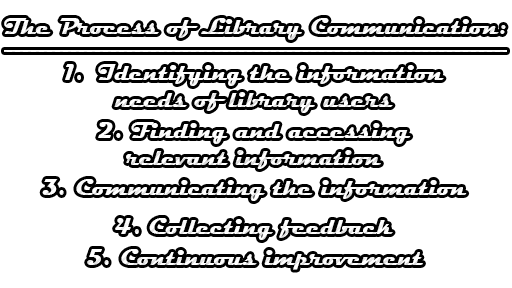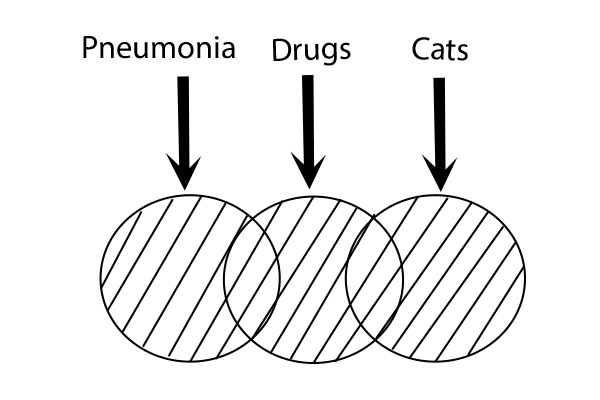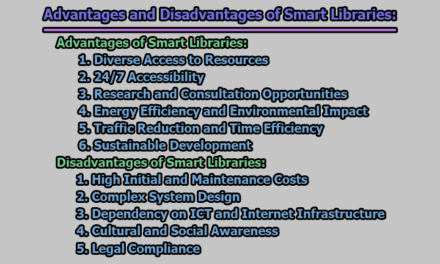The Process of Library Communication:
Library communication refers to the exchange of information and ideas between libraries, library staff, and library users. The process of library communication can be broken down into several key steps:
1. Identifying the information needs of library users: The first step in library communication is to understand the information needs of library users. Library staff must be able to identify the information needs of library users by asking questions and conducting reference interviews.
2. Finding and accessing relevant information: Once the information needs of library users are identified, library staff must find and access the relevant information. This may involve searching library catalogs, databases, and other resources to locate the information.
3. Communicating the information: Once the relevant information is located, library staff must communicate it to library users in a way that is understandable and useful. This may involve providing instruction on how to use the resources, summarizing the information, or creating customized reports or guides.
4. Collecting feedback: After the information has been communicated, library staff must collect feedback from library users to ensure that their information needs have been met. This may involve conducting surveys, focus groups, or one-on-one conversations with library users.
5. Continuous improvement: Finally, library staff must use the feedback they receive to continuously improve the library’s communication processes. This may involve making changes to the library’s services, resources, or policies to better meet the needs of library users.
Overall, effective library communication involves understanding the information needs of library users, finding and accessing relevant information, communicating the information in a useful way, collecting feedback, and continuously improving the library’s communication processes to better serve the needs of library users.

Library Lecturer at Nurul Amin Degree College










